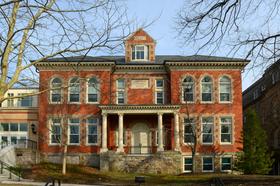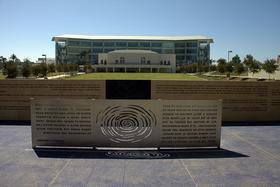Parents send their children to school every day in hopes that their kids will get a good education in a relatively safe environment. However, drug sales and gang activity often impact a student's ability to learn and feel comfortable in the place they spend the bulk of their time every day. While few argue that drugs and gangs have become a major problem in middle and high schools across the country, not everyone agrees what should be done. Some schools have brought in undercover officers who pose as high school students with the goal of routing out the guilty parties and removing them from the school environment. While the approach has proven successful, questions still remain about whether this is the right way to put a stop to illegal activity in public schools.
Undercover in Florida
In one of the biggest stings ever to hit public high schools, more than 30 people have been arrested in Palm Beach schools for selling drugs in an undercover operation dubbed "Operation D Minus." The students responsible for the drug sales were identified by undercover police officers who posed as students in the schools for the entire school year. These youthful officers were assigned to attend classes, eat lunch in the school cafeteria and even take tests with the other students, in hopes of discovering the root of the drug problem that had grown by monumental proportions among high school students in the area.
According to a report at WPTV, one of the female officers was even asked to prom by a "fellow student," although she had to decline. The officer told WPTV, "My eyes are now completely open to what kids have to deal with every day." The officer ate lunch with students, slipped in and out of classes and even took an FCAT when she was unable to avoid the test. No one but the principal of the school she attended knew her true identity, including the teachers who delivered her lessons in classrooms every single day.
The officer in question hung out with students between classes as well, dishing about teachers, homework, relationships – and waiting for the subject of drugs to come up. The officer was careful never to bring up the subject herself, but told WPTV, "It would usually come up in conversations; someone else would bring it up." The officer even received a dress code violation for wearing her skirt too short one day.
The Result of the Sting
As a result of this officer's work, as well as the investigation of numerous other undercover cops posing as high school students, 27 local high school students were arrested for selling drugs to other students, along with two home school students and one student from a nearby middle school. A high school dropout and an adult education student were also charged, according to a report at Gather.
Because of the success of this initial sting, "Operation D Minus" is expected to continue at other high schools next year. However, despite the arrests made, some were not appreciative of the lengths the police department went to in this operation, saying the undercover work was a violation of student privacy rights.
One former Palm Beach student believes the ends far outweigh the means in this situation. Eva-Tanja Howard, the parent of a high school son, told Gather, "I do not feel that it is an invasion of privacy and it is justifiable. The thought of losing my son on an overdose, because someone gave him a pill and said, 'Just try this once…you'll like it.' Next thing you know, my son is gone." Howard added, "They should have multiple drug stings to send the message across that it's not okay to sell or do drugs. We need to get the drugs away from the schools – let it be with stings, horrific pictures, whatever it takes to make these kids realize that it's not worth it!"
Drug Raid in Texas Nails 16
Last year, a similar operation was conducted at Brazoria County's Columbia High School campus. The school brought in an undercover police officer known as "Victor" to the students, who was able to collect enough evidence in three months to arrest 16 students for delivering drugs. According to a report at the Houston Chronicle, the drugs exchanged ranged from marijuana and cocaine to an array of prescription medications. None of the students at the school had an inkling of who "Victor" really was until the raid and arrests occurred without warning one Friday morning.
Ganging Up on Gangs
In Indianapolis, gangs have become a major problem for the city. According to a report at WTHR, police are targeting gang activities in schools throughout the Indianapolis area in hopes of driving down crime rates in the city. To achieve that end, undercover officers are working in the schools to identify gang members at schools and steer them away from the activity. Big D, an undercover gang detective, told WTHR, "You want to get in front of the gang problem because it's going to lead to bigger problems down the road."
Undercover police officers are just one tool that can be effective in cutting down on crime in schools and helping students enjoy a safe environment where they can pursue their educational goals. As schools see success in this area, more may be open to the idea of undercover officers on their campuses in the future.












